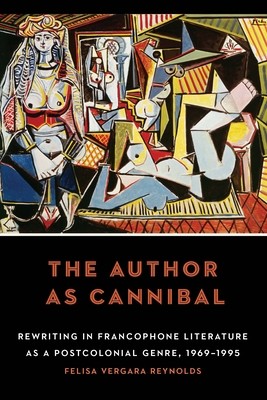
- We will send in 10–14 business days.
- Author: Felisa Vergara Reynolds
- Publisher: University of Nebraska Press
- ISBN-10: 1496218426
- ISBN-13: 9781496218421
- Format: 15.2 x 22.9 x 2.1 cm, hardcover
- Language: English
- SAVE -10% with code: EXTRA
Reviews
Description
In the first decades after the end of French rule, Francophone authors engaged in an exercise of rewriting narratives from the colonial literary canon. In The Author as Cannibal, Felisa Vergara Reynolds presents these textual revisions as figurative acts of cannibalism and examines how these literary cannibalizations critique colonialism and its legacy in each author's homeland. Reynolds focuses on four representative texts: Une tempête (1969) by Aimé Césaire, Le temps de Tamango (1981) by Boubacar Boris Diop, L'amour, la fantasia (1985) by Assia Djebar, and La migration des coeurs (1995) by Maryse Condé. Though written independently in Africa and the Caribbean, these texts all combine critical adaptation with creative destruction in an attempt to eradicate the social, political, cultural, and linguistic remnants of colonization long after independence.
The Author as Cannibal situates these works within Francophone studies, showing that the extent of their postcolonial critique is better understood when they are considered collectively. Crucial to the book are two interviews with Maryse Condé, which provide great insight on literary cannibalism. By foregrounding thematic concerns and writing strategies in these texts, Reynolds shows how these rewritings are an underappreciated collective form of protest and resistance for Francophone authors.EXTRA 10 % discount with code: EXTRA
The promotion ends in 18d.19:04:30
The discount code is valid when purchasing from 10 €. Discounts do not stack.
- Author: Felisa Vergara Reynolds
- Publisher: University of Nebraska Press
- ISBN-10: 1496218426
- ISBN-13: 9781496218421
- Format: 15.2 x 22.9 x 2.1 cm, hardcover
- Language: English English
In the first decades after the end of French rule, Francophone authors engaged in an exercise of rewriting narratives from the colonial literary canon. In The Author as Cannibal, Felisa Vergara Reynolds presents these textual revisions as figurative acts of cannibalism and examines how these literary cannibalizations critique colonialism and its legacy in each author's homeland. Reynolds focuses on four representative texts: Une tempête (1969) by Aimé Césaire, Le temps de Tamango (1981) by Boubacar Boris Diop, L'amour, la fantasia (1985) by Assia Djebar, and La migration des coeurs (1995) by Maryse Condé. Though written independently in Africa and the Caribbean, these texts all combine critical adaptation with creative destruction in an attempt to eradicate the social, political, cultural, and linguistic remnants of colonization long after independence.
The Author as Cannibal situates these works within Francophone studies, showing that the extent of their postcolonial critique is better understood when they are considered collectively. Crucial to the book are two interviews with Maryse Condé, which provide great insight on literary cannibalism. By foregrounding thematic concerns and writing strategies in these texts, Reynolds shows how these rewritings are an underappreciated collective form of protest and resistance for Francophone authors.

Reviews